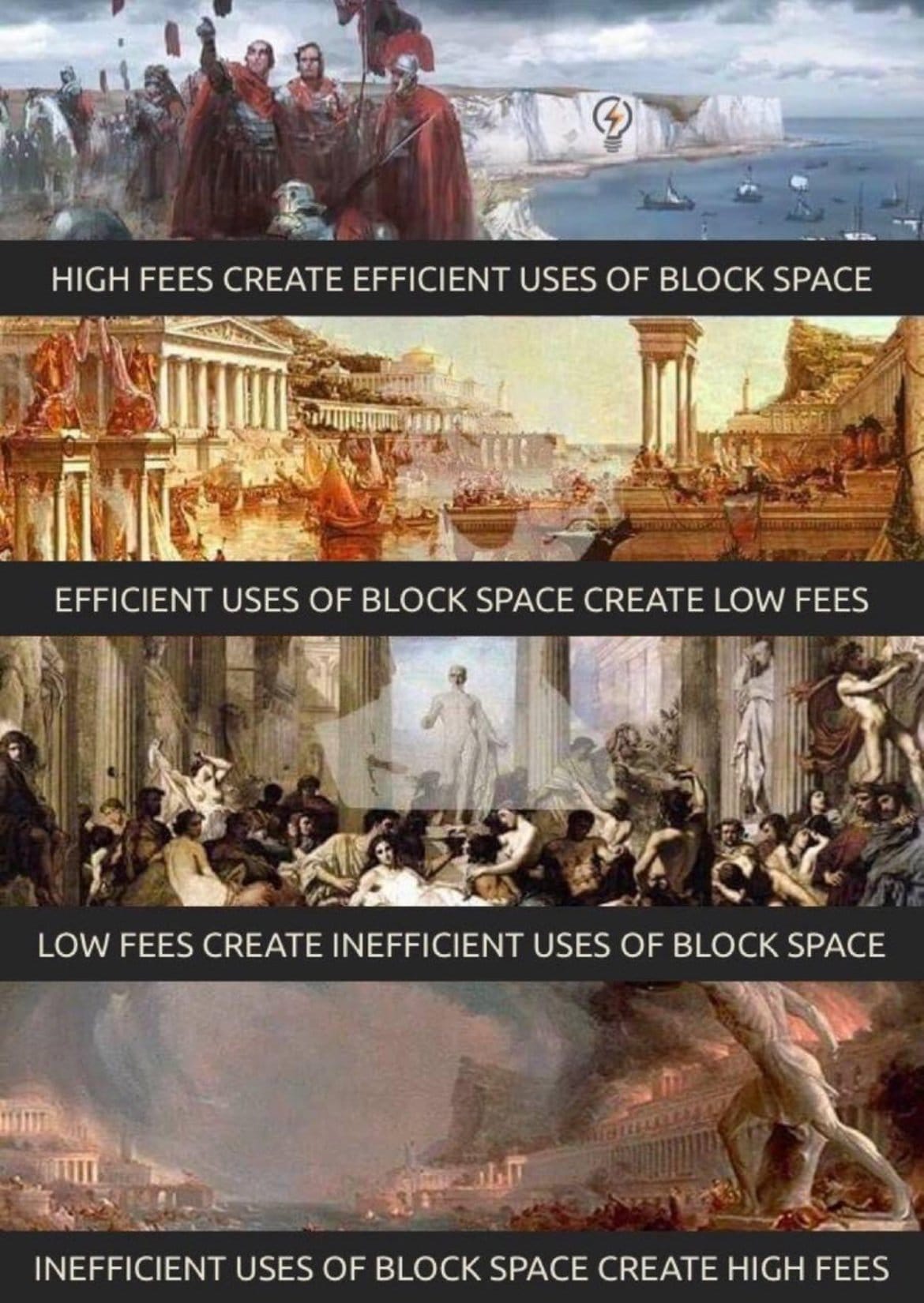Bitfinity Weekly: Micro Strategies

Welcome to Issue #104 of Bitfinity Weekly for our #BITFINIANS community. If this newsletter was forwarded to you, sign up here.
What's in Today's Email?
- Global Crypto News
- NFT Market Bytes
- Tweet of the Week
- Meme Time
- A Matter of Opinion
Global Crypto News
🔨 Crucified: Early Bitcoin investor Roger Ver, also known online as 'Bitcoin Jesus', has been charged by the U.S. DOJ (Department of Justice) for tax evasion and is awaiting extradition after his recent arrest in Spain. The DOJ alleges that Ver evaded at least $48m in taxes, and faces a total of eight counts related to tax evasion, mail fraud, and falsifying tax returns.
🪪 Checking IDs: Bitcoin evangelist Michael Saylor's company, MicroStrategy, announced earlier this week that they are building a decentralized identity service using Ordinal inscriptions on the Bitcoin network. The DIDs (Decentralized IDs) seek to provide "tamper-proof and long-lived" decentralized IDs that allows for pseudonymity in Bitcoin transactions.
⬜ C-ing Stripes: Avalanche's C-Chain network has integrated with international fiat payment processing giant Stripe, enabling verified users to purchase and transfer $AVAX directly to their wallet from their Stripe account. Adoption within the ecosystem seems to be rapid, with eight Avalanche dApps also incorporating Stripe for fiat-to-crypto conversions.
📄 Hidden Hands: New court documents filed by Ethereum software company Consensys reveal that the SEC and chairman Gary Gensler may have been considering $ETH a security for at least a year. This new revelation is a part of a lawsuit against the SEC by Consensys, which was filed last week over claims that the American agency is attempting an unlawful power grab.
NFT Market Bytes
🐦 What the Flock: Ethereum NFT collection 'Moonbirds' are soaring in price and volume following the unveiling of the Moonbird Universe metaverse. The Moonbirds brand, which originally was under NFT figure Kevin Rose (of Proof Collective), is now under web3 IP giant Yuga Labs. Controversially, alongside the positive metaverse news, Moonbirds has reversed its copyright policy, requiring a token for commercialization, unlike its previous Creative Commons CC0 model.
🕒 Time Together: Casio, a Japanese multinational electronics company best known to the public for their specialized calculators and digital watches, has partnered with Astar Network to launch an NFT collection to commemorate its 50th anniversary. The collection, inspired by Casio timepieces, are also a part of Astar Network's Yoki Origins game.
🖼️ Fourth Place: Ethereum 'bluechip' NFT collection CryptoPunks has seen a flurry of high-value activity in recent months, the latest being the sale of CryptoPunk #635. The sale (of $12m) is notable not just for the distinction of being the fourth largest CryptoPunk sale ever, but also because it is the first sale for #635 since it was originally claimed in 2017.
Tweet of the Week
Sonic V3 on @bitfinitynet public test net will go live on May 15th.
— Sonic (@sonic_ooo) May 2, 2024
We have a surprise for our testnet users. Stay tuned for more updates. pic.twitter.com/VYYmvxLpwB
Meme Time

A Matter of Opinion
The eagerly awaited EigenLayer airdrop happened on Monday, but the reception has been far from enthusiastic. Traders and airdrop farmers alike have been voicing their opinion, and this editor wonders what changes, if any, will made to the airdrop strategies of large projects in this cycle.
The primary grievance in this situation revolves around EigenLayer's distribution strategy. With only 5% earmarked for the initial round and an additional 10% for subsequent phases, many argue that this allocation is too conservative. According to CC2Ventures, a seasoned trader, a higher percentage, around 7% to 8%, would have garnered a more positive response from the community.
However, allocation size isn't the only bone of contention. Thor Hartvigesen of Heartcore Web3 highlights the confusion stemming from the communication surrounding the announcement, particularly concerning the allocation for "complex DeFi protocols." Moreover, EigenLayer's decision to exclude users from certain countries, including the U.S., as well as those utilizing virtual private networks (VPNs), has drawn criticism for its exclusionary nature.
Furthermore, questions abound regarding the timing of the token introduction, given that it will remain non-transferable until later this year. This move has left many scratching their heads, wondering about the rationale behind launching a token that users cannot trade or send immediately. From the company's perspective, it was likely a move to stabilize the token price, as many airdropped tokens tend to plummet in price after launch as eager receipients seek to dump their entire allocation for a quick profit. However, this strategy has clearly backfired.
The repercussions of EigenLayer's airdrop continue reverberate throughout its ecosystem, which boasted over $16 billion in crypto assets at the time of the airdrop announcement. Liquid restaking protocols, a popular choice among users, further complicated matters. These protocols allowed users to restake Ether in EigenLayer and receive a token representing their stake, which could be used elsewhere in DeFi. However, the distribution of EIGEN allocations varies across different protocols, adding another layer of complexity to an already intricate process.
The introduction of the EIGEN token has also affected other projects in the DeFi space. Karak, EigenLayer's competitor, is running a similar airdrop campaign, attracting assets exiting EigenLayer in search of the next opportunity. The dynamics of fund movement between these platforms should certainly be interesting to observe in the coming days and weeks.
Connect with Bitfinity Network
Bitfinity Wallet | Bitfinity Network | Twitter | Telegram | Discord | Github

*Important Disclaimer: While every effort is made on this website to provide accurate information, any opinions expressed or information disseminated do not necessarily reflect the views of Bitfinity itself. The information provided here is for general informational purposes only and should not be considered as financial advice.





Comments ()